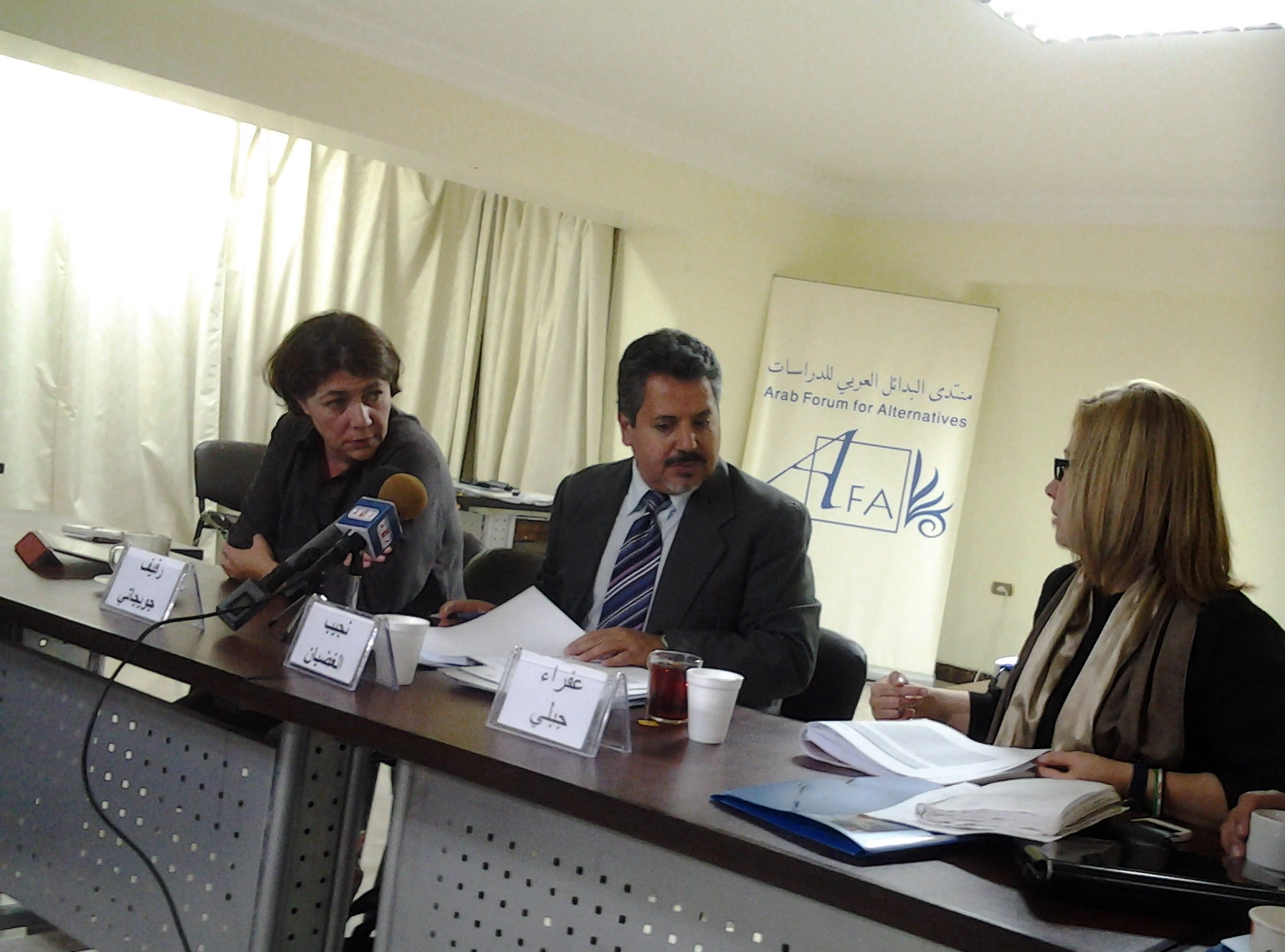
Syrian opposition figures discussed on Sunday the future of Syria after the predicted departure of Bashar Al-Assad at the Arab Forum for Alternatives in Cairo.
Fifty-five Syrian political activists and researchers representing all aspects of the Syrian opposition spectrum gathered in Cairo to announce a report titled “supporting a democratic transition of power in Syria.” The report is produced by The Day After project, which aims to find solutions to the challenges faced in the Syrian transitional phase, and to prevent further bloodshed in Syria.
Naguib Ghadban, Syrian opposition figure and a member of the executive committee of The Day After project, said that the idea of the project came from following the Arab Spring revolution, in which the Arab leaders tried to maintain their seats by claiming there are no other alternatives for their rule.
“We decided to counter this stereotype by founding this report, which was conducted by figures representing all the religious, ethnic and ideological groups in Syria. Our report seeks to create a new social contract between the new Syrian nation and its citizens, where the importance of equality and rule of law shall persist,” said Ghadban.
Ghadban said the report focuses on the notion of transitional justice, which grants the different Syrian groups equal rights.
He added the Syrian revolution is not a sectarian one, asserting that Shi’as, Sunnis, Christians and Kurds participated in the revolution against the tyrant Bashar Al-Assad. He added Syria won’t be divided into different independent states. However, he said that Syrian Kurds might have local autonomy, due to their cultural and linguistic differences.
Ghadban mentioned that the Syrian Muslim Brotherhood is a national group, which has participated in the struggle of the Syrian people. He added that the Muslim Brotherhood accepted the charter of the national council stating that Syria is a civil state.
Afraa Galaby, Syrian activist and a member of the executive committee of The Day After project, asserted the importance of the rule of law in the transition from dictatorship towards democracy. She added the rule of law in Syria depends on protecting the infrastructure and information databases. She said the Syrian regime is trying to destroy everything before they resign from power, including databases of Syrian citizens’ information.
Afraa also mentioned that there are currently more than 20,000 political detainees in Syria, predominantly youth, including children.
Afraa asserted that Turkey is a democratic country helping the Syrian opposition morally. She denied the possibility of further Turkish intervention in Syria after the departure of Al-Assad.



